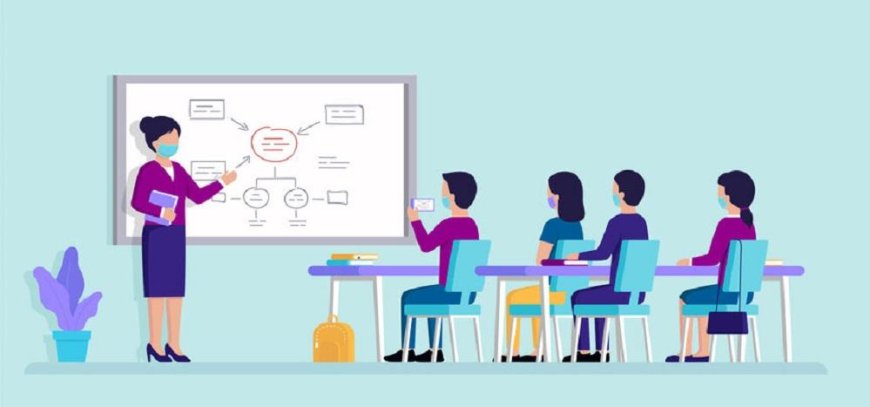Five Unobvious Mistakes by Teachers That Will Cost Loss of Trust and Authority Among Students
the new students will depend on how the teacher behaves with the new students during the first months. Unobvious Mistakes by Teachers.

The first months of the new school year are the most difficult not only for students but also for teachers. The success of their interaction with the new students will depend on how the teacher behaves with the new students during the first months. Unobvious Mistakes by Teachers.
Even experienced teachers are always nervous on the eve of lessons in new classes. What to say about novice teachers! After all, not yet having sufficient pedagogical skills, they make mistakes much more often in communication with students. What unobvious mistakes can be fatal and cost the teacher credibility in the eyes of students?
Error 1. Never deviate from the lesson plan
If you are ready to conduct classes under any conditions, without deviating from the pre-prepared synopsis, it is not as good as you think. Planning and preparation are a necessity, but often the format and stages of the lesson have to be changed on the fly. According to students' perceptions of the material.
Any experienced teacher will confirm that it is impossible to conduct two identical lessons according to the same plan. After all, the educational process is a two-way interaction! Those techniques and approaches that are well received by students in some classes often do not work in others. In addition, the assimilation of material by students depends not only on the level of their preparation but also on the degree of fatigue, emotional state, and other factors.
Tip: Observe students' reactions and guide the lesson format accordingly. Sometimes it is important to give students the opportunity to rest a bit - to tell a relevant story or hold a motor, in some cases - to hold competitions to test the level of knowledge and more.
Error â„– 2. Behave like a "boyfriend"
This is a typical mistake made by teachers who have a small age difference with their students.
Young professionals often try to minimize distance, so when communicating with students they can use teenage jargon and discuss topics that are in no way relevant to the lesson. For example, conversations about favorite music, movies, and sometimes even gossip about other teachers.
Tip: It is usually easier for young teachers to find common ground and build trusting relationships with students, but the teacher-student distance should still be maintained. Otherwise, children will not be able to perceive you as an adult, who can not only be a friend but also has the right to require a certain level of knowledge and discipline in the classroom.
Error â„– 3. Compare students with others
"Look how good Anna is today! You would all follow her example! "," Your brother was an excellent student, and you barely learn the material! " - Varieties of such phrases, said as if for educational purposes, can often be heard from many teachers. However, will they really benefit? Rather provoke a sense of hidden aggression.
Tip: When evaluating the progress or failure of each student, try to compare the student only with himself. For example, "I understand that it is difficult for you, but now you read much faster than a month ago" and more.
Must Read: Five reasons why teachers leave school
In cases where you need to quarrel with someone, try to avoid evaluative judgments about the student's personality, and only analyze a specific act.
Error â„–4. Systematically be late and do extraneous things during the lesson
If you allow yourself to talk on the phone, scroll through social media pages or correspond in messengers during the learning process, do not expect children not to do the same when you explain a new topic or hold an educational event. The same goes for systematic delays!
Tip: Avoid double standards like "What can a teacher do, a student is forbidden"! Only your own example is the most effective way to teach students to choose priorities correctly, to allocate time, and to respect the work and time of others.
Error â„–5. Be afraid of difficult questions and do not admit your own mistakes
At the beginning of the teaching, young professionals are afraid to look incompetent in the eyes of students. Therefore, they are extremely tense when they do not know the answers to some of the questions. And they feel even worse if they make mistakes, and the students notice it and pay attention.
How to act? Beginner teachers in such situations either quickly and recklessly try to answer something (often sharply and arrogantly), or evade the answer, shifting the topic of discussion. Both the first and the second options undermine the authority of the teacher because children do not like both superiority and ignorance.
Tip: If you don't know something or made a mistake, don't be afraid to admit it. Students will appreciate the sincerity. However, promise to understand by the next lesson, and be sure to keep your word!
Everyone can be wrong, but only the Internet knows everything.
Be open and positive, constantly improve your professional level and believe in your own strength!
